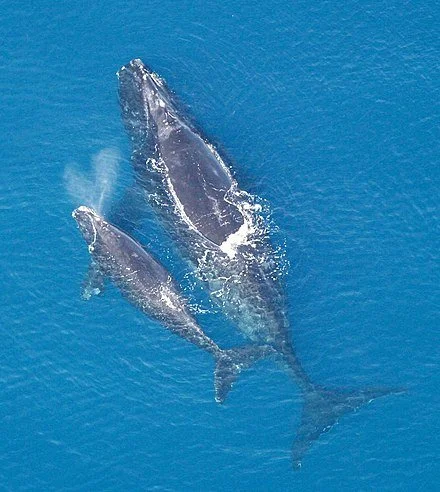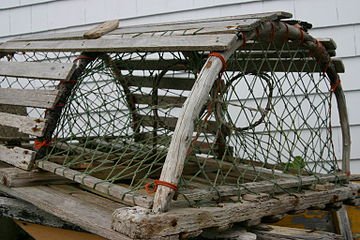
‘Ropeless’ fishing has promise to protect whales but adds costs, complications to industry
Text from article by Mary Lhowe in ecoRI News.
A handful of Rhode Island lobster fishermen are working this season with federal regulators to use and study some complex and early stage equipment that is intended, eventually, to greatly reduce entanglements and deaths of whales.
The experimental equipment for this so-called “ropeless” fishing would eliminate the vertical ropes — or “lines” — running down the water column from buoys on the surface to lines connecting a series of traps on the seafloor. The existing function of buoys and vertical lines — to find and retrieve traps — would be replaced under a new system by computerized acoustic signals from boats to the seafloor and geopositioning via cell signals or satellites.
Using federal experimental fishing permits, three Port Judith-based lobstermen are struggling to use the new gear, borrowed from the National Marine Fisheries Service (NMFS), a branch of NOAA Fisheries.
To read entire article, please hit this link.
Could lineless lobstering help save North Atlantic Right Whales from extinction?
North Atlantic Right Whale mother and calf.
Adapted from Robert Whitcomb’s “Digital Diary,’’ in GoLocal24.com
A group of Massachusetts lobstermen may have a way to be allowed to resume fishing in areas that have been closed off to such fishing because the vertical lines to traps (aka “pots”) at the sea bottom can entangle, injure and kill North Atlantic Right Whales and other whales, too.
The group would use remotely controlled balloon-like devices to bring the traps to the surface without lines. I wouldn’t be surprised if regulators mandate such arrangements, though naturally some other lobstermen are angry about the potential high expense.
Besides the fact that whales are big, highly intelligent, “charismatic” fellow mammals, why should we care if they go extinct? It’s because all species are connected. If you kill off one species, it has a knock-on and usually damaging (even lethal) effect on some others. The “web of life” and all that.
Old-fashioned lobster pot.
Protectionism bad for New England lobstermen
From Robert Whitcomb's "Digital Diary,'' in GoLocal24.com:
Beware of protectionism, especially involving close and traditionally friendly nations. Here’s a little example of what can happen when the United States excludes itself from international trade deals.
The New England lobster industry (which mostly means Maine) is understandably worried about the fact that Canada, whose Maritime Provinces are very big lobster exporters, and the European Union have agreed to end E.U. tariffs on Canadian lobster imports. North American lobsters are very popular, if expensive, food in Europe. The E.U. is the world’s biggest seafood importer.
The lobster deal is part of the Canada-European Union Comprehensive Economic and Trade Implementation Act (CETA). This is the sort of agreement that recalls the proposed Transatlantic Trade and Investment Partnership (TTIP) free-trade agreement between the E.U. and the U.S. Such a pact would strengthen economies on both sides of the Atlantic and make the West better able to confront the economic and security challenges posed by the aggressive, expansionist dictatorships of Russia and China. And, after all, we share basic political, social and economic values with Europe. We’re stronger together. But the Trump administration’s instincts, here and elsewhere, are protectionist, even when it comes to our closest allies, whom we need as much as they need us in a dangerous world.
The TTIP would, of course, be particularly beneficial to New England.




